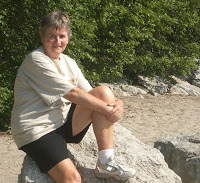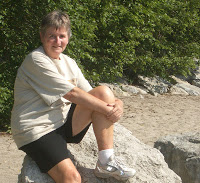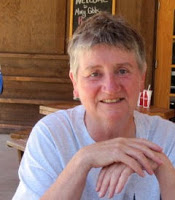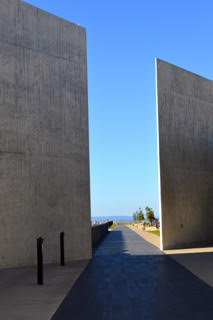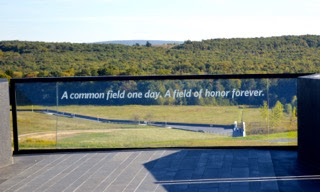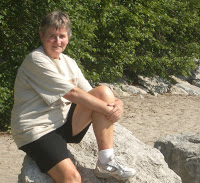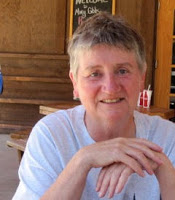Reputation is an idle and most false imposition; oft got without merit, and lost without deserving.
William Shakespeare
As most often, I completely agree with you, Will.
A reputation is a dangerous thing; good or bad, yours or someone else’s.
I guess the essence of their threat lies in the fact that we all tend to become sucked in by them, rather than by the reality of a person’s character. And, again, this is as true of our own as of others’. Being fooled by another person’s reputation, or image, is dangerous. Being led astray from your real self by your own, can be disastrous.
Reputations, and the images they create of us, can stay pretty stable throughout a lifetime, but for many of us they are fluid, changing as we grow. Who doesn’t know that wild child with the dreadful reputation in high school, who grew up to be a boringly conventional pillar of the community? Nevertheless that past reputation can hang around. Who has completely forgotten Chappaquiddick? It followed Ted Kennedy to his grave and beyond into the history books. The same for Monica Lewinsky, who will forever haunt Clinton’s reputation.
I’m not sure whether reputations have become more insidious in our modern word, or less.
In the days when most of us lived in small communities where everyone knew everyone else, it was hard for anyone to escape their established reputation and build a new one. You aren’t going to employ Bob to put in your new windows. He got caught shop-lifting at the dime store when he was ten. Probably rips off all his glass from some place. And as for letting Mary baby-sit. Remember how she knocked her baby sister off the chair that time? Well, yes, probably was an accident but still ……
These days, we tend not to know that the woman selling us insurance used to beat her children, or that the man fixing our car is a longtime alcoholic. On the other hand, anything you do or say can swoop around the world in a nanosecond, and if whatever it is goes viral, God help you!
I believe a lot of what Facebook is about is changing reputations, your own and others’, which is surely much easier to do these days than back in the small town where you were the town drunk for life no matter that you had been on the wagon for half of your life.
Winston Churchill was a perfect example of changing reputations. Come to that, he still is.
His youthful military escapades were a mixed bag, but, never lacking in ego, by the age of 26 he had published five books about them. His reputation was mixed, but he was made Lord of the Admiralty at at the ridiculously young age of 37. Sadly for him, and alas much sadder for the 250,000 casualties, his poorly-conceived Siege of the Dardanelles during WW1 was a total disaster and he was forced to resign, with his reputation in tatters. He immediately redeemed much of it by consigning himself to trench warfare, where he reportedly fought with vigor and valor.
Between the wars, his constant warnings of impending and inevitable war with Germany again diminished his reputation. No-one wanted to hear it. The Boer War was not so long over, and the British were not up for another. But when Germany broke its promises and invaded Poland, Churchill was proven right and his reputation soared. Almost instantaneously he was made Prime Minister and, with his reputation as that British Bulldog thundering around him, proclaimed by most as Britain’s savior. His very reputation, along with endless stirring speeches, did much to keep spirits high under desperate conditions, and to keep most Britons determined to go on fighting.
But that reputation, as a supreme fighter who would never give up, lost all appeal the moment the war ended. Churchill’s hawkish reputation coupled with his endless warnings over the new threat from the Soviets, were too scary for peace-time. Two months later Winston Churchill was defeated soundly at the polls.
His ego, however, remained undaunted. He had no fear for his reputation.
“History,” he pronounced, “Will be kind to me for I intend to write it.”
Which he did. Over his lifetime he wrote 43 books in 72 volumes.
But still he was unable completely to preserve a positive reputation.
Although for many years it was considered akin to blasphemy to criticize such a great hero, that is no longer the case. There is much discussion these days as to whether Churchill was, to quote Dr. Andrew Roberts, “Brilliant Statesman or Brutal Demagogue.” Just from his own quotations, he was clearly misogynistic and racist, but in his day that was not condemned as it is today. So reputations change not only as a person changes, and events change, but as attitudes change.
And so we re-write history.
It’s hard to be sure what one’s own reputation is. Probably, in many cases, not exactly what we think it is or would like it to be. I do know that when I was married the first time, to a man, we were considered a really strong, stable couple. I know that because our friends were so utterly shocked when we split up. And, in so many ways, that reputation was valid. Except for one teensy weensy detail which no-one knew. In one way our reputation as a married couple was true. In another, it was as far off as it could be. But I was the only one who knew that; and I played my part so well.
When I came out, I became a bit confused. I wasn’t at all sure what the archetypal lesbian would be; but whatever it was, that’s what I would become. I observed carefully in this new world, and acted accordingly to create a new reputation, a new version of myself. Thankfully, this stage did not last long.
You’re doing it again! I said to myself. Your entire life you have created a false reputation for yourself, and now you’re finally free, you’re doing it again! STOP!
So I did.
And for over 30 years now, I have simply been me. I don’t know what kind of reputation I have.
I don’t care. A reputation is simply others’ visions, versions, of me. It may or may not be anywhere near the truth. It simply doesn’t matter.
Free at last!
© October 2014
About the Author
I was born and raised in England. After graduation from college there, I moved to the U.S. and, having discovered Colorado, never left. I have lived in the Denver-Boulder area since 1965, working for 30 years at IBM. I married, raised four stepchildren, then got divorced after finally, in my forties, accepting myself as a lesbian. I have been with my wonderful partner Betsy for thirty years. We have been married since 2013.
